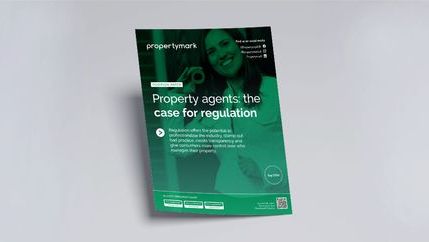Estate agent regulation
Currently, estate agents do not need to be licensed or qualified. In Scotland, a solicitor will manage much of the property sale. However, in England, Wales and Northern Ireland, unless the estate agent is a qualified chartered surveyor, he/she will liaise with other professional parties.
Estate agents need to abide by the Estate Agents Act 1979, the Consumer Protection from Unfair Trading Regulations 2008 and agents in the UK who engage in residential estate agency work are required to belong to an approved redress scheme under the Consumers, Estate Agents and Redress Act 2007.
Letting agent regulation
The Private Rented Sector in the UK is complex and can be confusing. There is a huge amount of legislation that letting agents need to follow and because housing policy devolved the rules can vary quite dramatically across the different countries. Use the tabs to find out more.
There is currently no overarching statutory regulation of private sector letting or managing agents in England. You do not need a qualification to to work as a letting agent and anyone can set up a lettings agency without any prior experience.
However, if you do set up an agency, you are subject to consumer protection law and specific provisions in relation to the charging of fees as well as these mandatory requirements:
- Registration with a Government-approved independent redress scheme
- Tenancy deposits must be protected through a Government-approved scheme
- Registration with a Government-approved Client Money Protection (CMP) scheme
Propertymark was a member of the UK Government’s Regulation of Property Agents (RoPA) Working Group. This was a small group of industry stakeholders set up to examine several key industry issues including regulation and qualification
Letting agent working or managing property in Scotland need to understand the Letting Agent Code of Practice and the meet the minimum training standards required to join the Scottish Letting Agent Register.
The code sets out standards of how letting agents deliver services, including specific requirements on how to handle clients’ money. It was introduced to improve the protection for landlords and tenants while eradicating poor quality housing. It states that it will 'help raise standards (where this is needed) and help build a more effective Private Rented Sector that meets the needs of tenants, landlords and letting agents'.
The Register for Letting Agents in Scotland opened 31 January 2018, marking a new era of professionalism for the lettings industry. Agents had eight months to familiarise themselves with the Code of Practice and complete any training required to fulfil the criteria. Since October 2018, it has been a criminal offence to carry out letting agency work if an agent is not on the register.
Scottish Letting Agent Register and Code of Practice
Scottish agents need to understand the Letting Agent Code of Practice and requirements for the Scottish Letting Agent Register.
All letting agents in Wales (and the wider UK who let or manage rental properties in Wales) must be suitably trained and licensed to carry out letting or property management work. Since November 2016, the law requires landlords in Wales to register themselves and their properties with Rent Smart Wales.
Landlords must be suitably trained and licensed to carry out letting or property management activities, or arrange for a trained and licensed letting agent to manage their properties on their behalf. This means all letting agents in Wales need to be suitably trained and licensed and the agencies themselves must:
- Have Client Money Protection (CMP)
- Have professional indemnity insurance
- Belong to an independent redress scheme
- Provide all of their landlord and property details
Rent Smart Wales
All letting agents who let or manage rental properties in Wales must be suitably trained and licensed to carry out letting or property management work.
There is currently no letting agent regulation in Northern Ireland and there are no legally binding requirements on letting agents to join a redress scheme or have Client Money Protection (CMP).
In January 2017, the Department for Communities published proposals for significant changes to the private rented sector with the inclusion of introducing regulation. This subjected all unfit properties built before 1956 to rent control and banned letting agent fees to tenants.
With the collapse of the Northern Ireland Government progress stalled, however in April 2022, the Private Tenancies Act (Northern Ireland) 2022 recieved royal assent making several changes to the Private Tenancies Order (Northern Ireland) 2006, the primary legislation governing the private rented sector in Northern Ireland. However, mandatory regulation and licensing is not part of the Act.
Private Tenancies Act (Northern Ireland) 2022
The Act represents the biggest change to housing law in Northern Ireland for years. It reforms the way all landlords and letting agents in Northern Ireland rent their properties.
Regulation across Europe
The Real Estate Professions Across Europe (CEPI), which Propertymark is a member of, has produced a report on the regulatory situation of real estate professions across Europe. It includes insights from national experts, and licensing, educational, and professional requirements for real estate professionals, including agents and property managers. It also highlights diverse regulatory frameworks, from strict state-controlled systems to self-regulatory models with the aim of creating an exchange platform to discuss best practice regulatory solutions and assist those countries that are introducing or revising national professional regulation.








